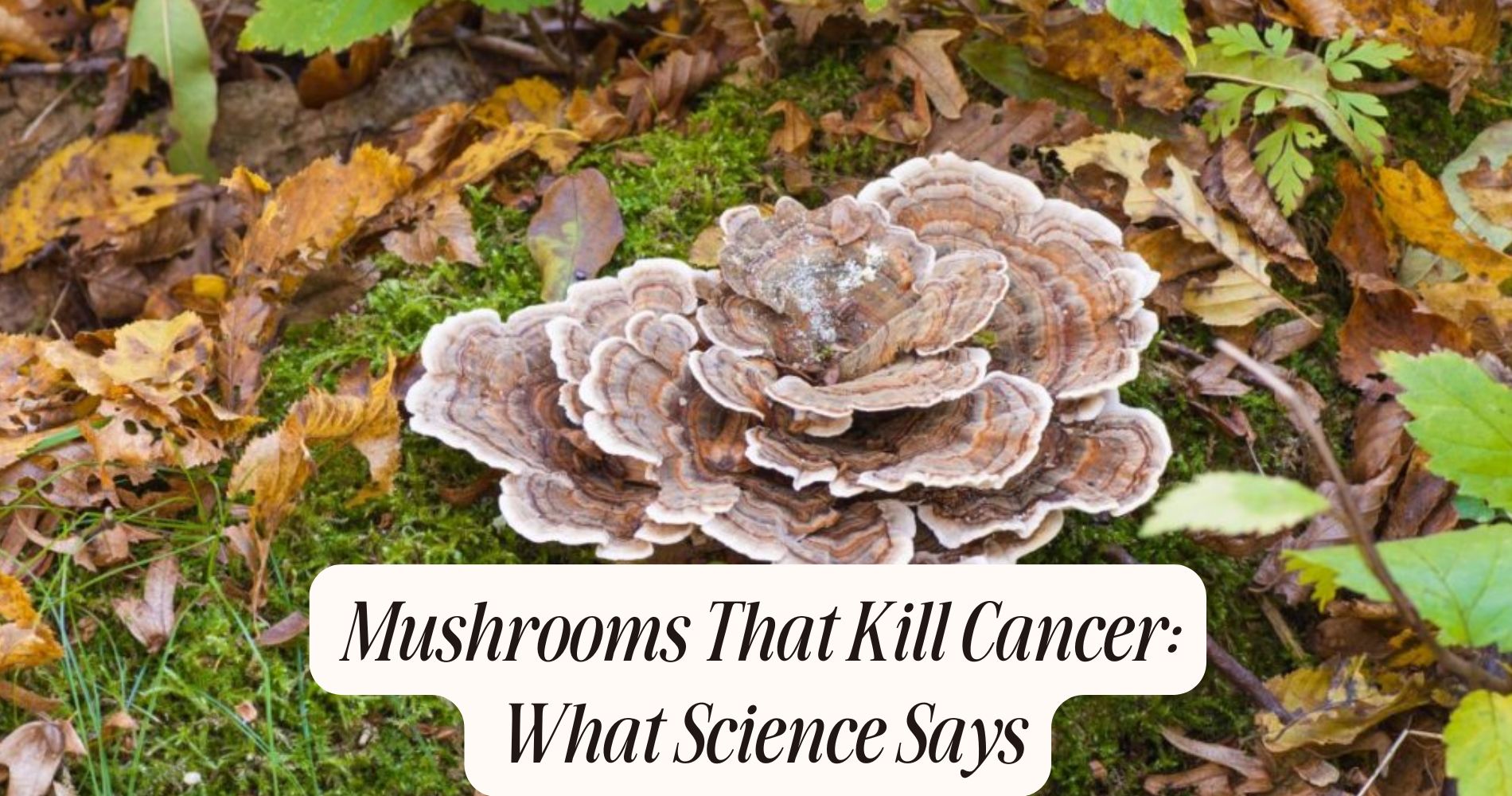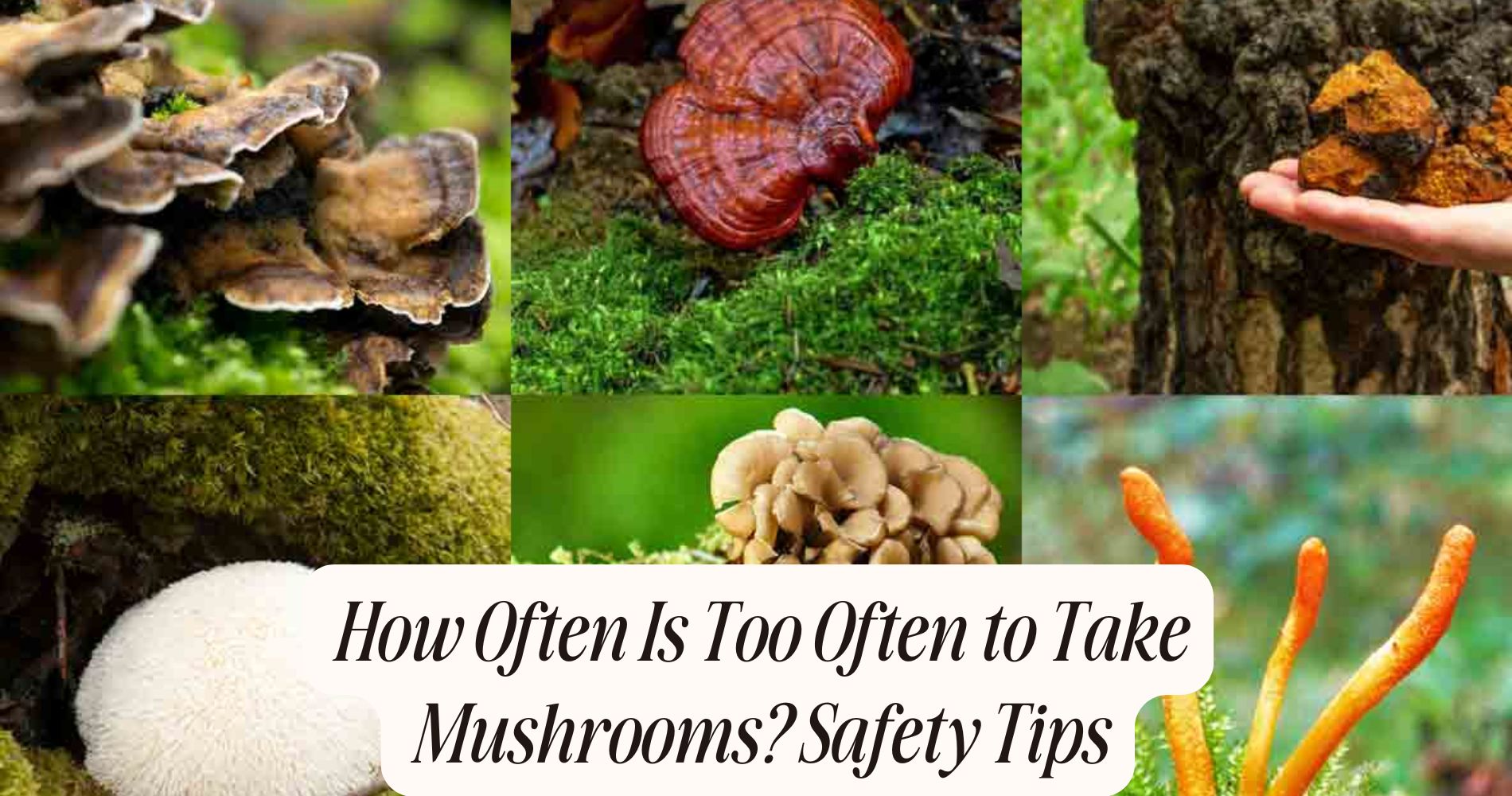
Mushrooms That Kill Cancer: What Science Says
Scientific studies highlight the potential of mushrooms that kill cancer through bioactive compounds like beta-glucans and triterpenoids, which enhance immune response and trigger apoptosis in cancer cells. Varieties like Reishi, Turkey Tail, and Shiitake have demonstrated tumor-inhibiting properties by boosting immune function, while Lion’s Mane and Chaga help combat oxidative stress and promote cell regeneration. These mushrooms may serve as complementary tools alongside traditional cancer treatments. Explore how these powerful fungi could support your health journey.
Understanding the Anti-Cancer Properties of Mushrooms
While scientific research into mushrooms' anti-cancer properties is ongoing, several studies have highlighted promising compounds. You should focus on understanding the cancer mechanisms influenced by various mushroom types.
For instance, species like Reishi and Turkey Tail demonstrate potential in modulating immune responses. They appear to enhance natural killer cell activity, vital in targeting malignant cells.

Additionally, Shiitake mushrooms may inhibit tumor growth by affecting angiogenesis, the process that supplies blood to tumors. You should consider how these mushrooms might disrupt signaling pathways involved in cancer proliferation.
Key Compounds Found in Medicinal Mushrooms
Mushrooms contain a variety of bioactive compounds that contribute to their medicinal properties, particularly in oncology. Among these, beta glucans are polysaccharides that modulate immune responses, enhancing the body's ability to detect and destroy cancer cells.
Beta glucans' benefits include activating macrophages and natural killer cells, integral to tumor defense mechanisms.
Another key group, triterpenoids, exhibits anti-cancer properties by inducing apoptosis and inhibiting angiogenesis in malignant cells. Triterpenoids' effects also include suppressing tumor proliferation through oxidative stress regulation and cell cycle arrest.
The presence of these compounds in medicinal mushrooms underpins their therapeutic potential in oncology, offering a promising adjunctive strategy to conventional cancer treatments.
Your understanding of these compounds can inform decisions regarding integrative oncology approaches.
Notable Mushroom Varieties With Potential Cancer-Fighting Abilities
Among the diverse range of medicinal mushrooms, several species stand out for their potential cancer-fighting abilities.
Lion's Mane, known for its neuroprotective properties, also exhibits antineoplastic effects. It contains bioactive compounds such as hericenones and erinacines, which may promote apoptosis in malignant cells. Additionally, Lion's Mane enhances immune surveillance by stimulating macrophage activity.
Chaga Benefits are also remarkable. This mushroom is rich in betulinic acid, a potent compound with cytotoxic properties against cancer cells.

Chaga's polysaccharides modulate the immune response, enhancing the body's natural defense mechanisms. Its antioxidant capacity mitigates oxidative stress, a known contributor to carcinogenesis.
These mushrooms offer promising adjunctive strategies in oncological treatment, though clinical application requires further investigation to establish efficacy and safety.
Scientific Studies on Mushrooms and Cancer Treatment
Research into the cancer-fighting potential of medicinal mushrooms has gained momentum, highlighting their possible role in enhancing conventional oncological treatments.
Clinical trials have demonstrated that compounds extracted from certain mushrooms, including polysaccharides and triterpenoids, exhibit promising anticancer properties. These bioactive components can modulate immune responses, potentially inhibiting tumor growth and promoting cancer cell apoptosis.
Evidence supports the integration of mushroom cultivation techniques to optimize the yield and potency of these substances.
Studies emphasize mushrooms' potential in cancer prevention, suggesting they may reduce the risk of carcinogenesis through antioxidant activities and immune system enhancement.
Integrating Mushrooms Into Cancer Therapy Plans
While evaluating the integration of medicinal mushrooms into cancer therapy plans, it's vital to assess their interactions with conventional treatments. Evidence suggests that dietary incorporation of specific mushrooms may optimize therapeutic synergy, enhancing treatment efficacy.
You should evaluate the bioactive compounds like polysaccharides and triterpenoids, which may modulate immune responses and inhibit tumor growth. Clinical trials indicate that combining these mushrooms with chemotherapy or radiation might reduce side effects and improve patient outcomes.

To effectively integrate mushrooms, consult with oncology specialists to tailor individualized plans. You need to take into account potential contraindications and ascertain that mushroom supplementation doesn't interfere with pharmacokinetics of cancer drugs.
Elevate Your Wellness with SUPER MUSHROOM GUMMIES
If you're looking to harness the powerful health benefits of mushrooms without the hassle of cooking or brewing teas, SUPER MUSHROOM GUMMIES by Well Gummies are the perfect solution. Packed with 10 functional mushrooms, including reishi, turkey tail, lion’s mane, and chaga, these delicious, wild berry-flavored gummies help boost immunity, sharpen focus, and provide sustained energy without jitters or crashes. Designed for convenience, they offer all the benefits of mushrooms in an easy-to-enjoy chew. Fuel your body and mind naturally—try SUPER MUSHROOM GUMMIES today!
Frequently Asked Questions
Can Mushrooms Cure Cancer on Their Own?
You can't rely solely on mushroom compounds to cure cancer. Cancer research indicates these compounds may support traditional treatments by enhancing immune response or inhibiting tumor growth, but they're not a standalone cure. Always consult healthcare professionals.
Are There Any Side Effects to Consuming Medicinal Mushrooms?
When consuming medicinal mushrooms, you might experience side effects due to potential allergies or individual sensitivities. Clinical evidence suggests reactions like skin rashes or gastrointestinal issues. It's advisable to consult healthcare professionals before incorporating them into your regimen.
How Do Mushrooms Interact With Traditional Cancer Treatments?
You're exploring how mushrooms interact with cancer treatments. Mushrooms can create synergy, potentially enhancing treatment efficacy. Clinical studies suggest they may bolster immune response, yet further research is needed to fully understand their therapeutic integration and potential benefits.
What Is the Recommended Dosage of Medicinal Mushrooms for Cancer Patients?
You should consult your oncologist for specific dosage guidelines, as they vary among mushroom types like Reishi or Chaga. Clinical studies often recommend different dosages based on individual health conditions and treatment regimens. Always prioritize professional guidance.
Are There Specific Mushroom Supplements Recommended for Cancer Prevention?
You should consider specific mushroom varieties like Reishi and Turkey Tail for cancer prevention. Clinical studies suggest their supplement efficacy in boosting immune responses, but consult healthcare professionals for personalized guidance and evidence-based recommendations tailored to your needs.
Conclusion
You've explored the promising anti-cancer properties of mushrooms, backed by scientific research. Key compounds like polysaccharides and triterpenes found in varieties such as Reishi and Turkey Tail show potential in inhibiting cancer cell growth. Clinical studies suggest these mushrooms can complement traditional cancer therapies, enhancing efficacy and reducing side effects. By integrating these fungi into treatment plans, you can harness their therapeutic potential, though it's vital to consult healthcare professionals to guarantee safe and effective use.




